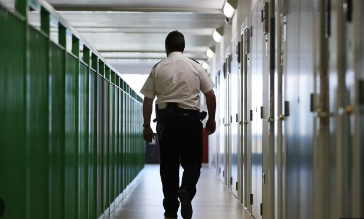King Charles has been diagnosed with a form of cancer, Buckingham Palace revealed on Monday, though royal officials didn’t name what type of cancer the monarch has.
The cancer was detected during the 75-year-old royal’s treatment late last month for an enlarged prostate, which the palace statement referred to as a “separate issue of concern,” indicating that the king does not have prostate cancer. “Subsequent diagnostic tests” confirmed the cancer, according to the statement.
On the advice of his doctors, Charles will take a break from his public-facing duties while he undergoes a schedule of regular treatment.
The announcement added that he had opted to share his diagnosis to prevent the kind of speculation that surrounded his daughter-in-law Kate Middleton during her recent hospitalization for abdominal surgery, and to “assist public understanding for all those around the world who are affected by cancer.”
Charles’s recent health issues have already aroused public interest. After he entered the London Clinic in late January for a procedure to treat his enlarged prostate, a palace statement noted the surge in online searches around prostate care following his health announcement, and acknowledged his pleasure at “having a positive impact on public health awareness.”
READ ALSO: British King Charles hospitalized for enlarged prostate
While few details about Charles’s cancer have been made public, the enlarged prostate for which he was recently treated is a common condition facing men. Here’s everything you need to know.
According to Humphreys, BPH becomes a problem when the prostate becomes so enlarged that it blocks the urine completely so you can’t pee, or you develop stones or an infection in the bladder. Not urinating properly is also bad news for your kidneys, which are responsible for filtering waste and excess fluids from the blood to create urine. If urine doesn’t flow properly, the kidneys may struggle to perform this essential function, resulting in damage to the organ. The prostate may also bleed when it becomes enlarged, says Humphreys.
Humphreys notes that it’s important to recognize the symptoms of an enlarged prostate before it gets to be too late. While the bladder will initially get stronger to overcome the obstruction caused by an enlarged prostate, at some point, he warns, it “is going to give up” and “won’t be able to squeeze the urine past the obstruction of the prostate.” That’s when medical intervention is needed to alleviate or remove that prostate obstruction.
“Most of our patients go home the same day as surgery, and they’re back to their normal activity in two weeks, as well as having minimal risk of blood loss,” he explains. “Men do very well with that particular surgery.”
Having an enlarged prostate is a common situation, especially for older men. However, it’s important to understand what may be happening, in order to avoid any complications.
“A lot of times men think that as they get older, they just pee worse because it’s a normal part of aging,” Humphreys explains. “Men need to have some awareness that these symptoms may be related to BPH, and have it checked out.”

 Entertainment1 week ago
Entertainment1 week ago
 Football1 week ago
Football1 week ago
 Health1 week ago
Health1 week ago
 Business7 days ago
Business7 days ago
 Business1 week ago
Business1 week ago
 Latest1 week ago
Latest1 week ago
 Entertainment1 week ago
Entertainment1 week ago
 Football7 days ago
Football7 days ago













